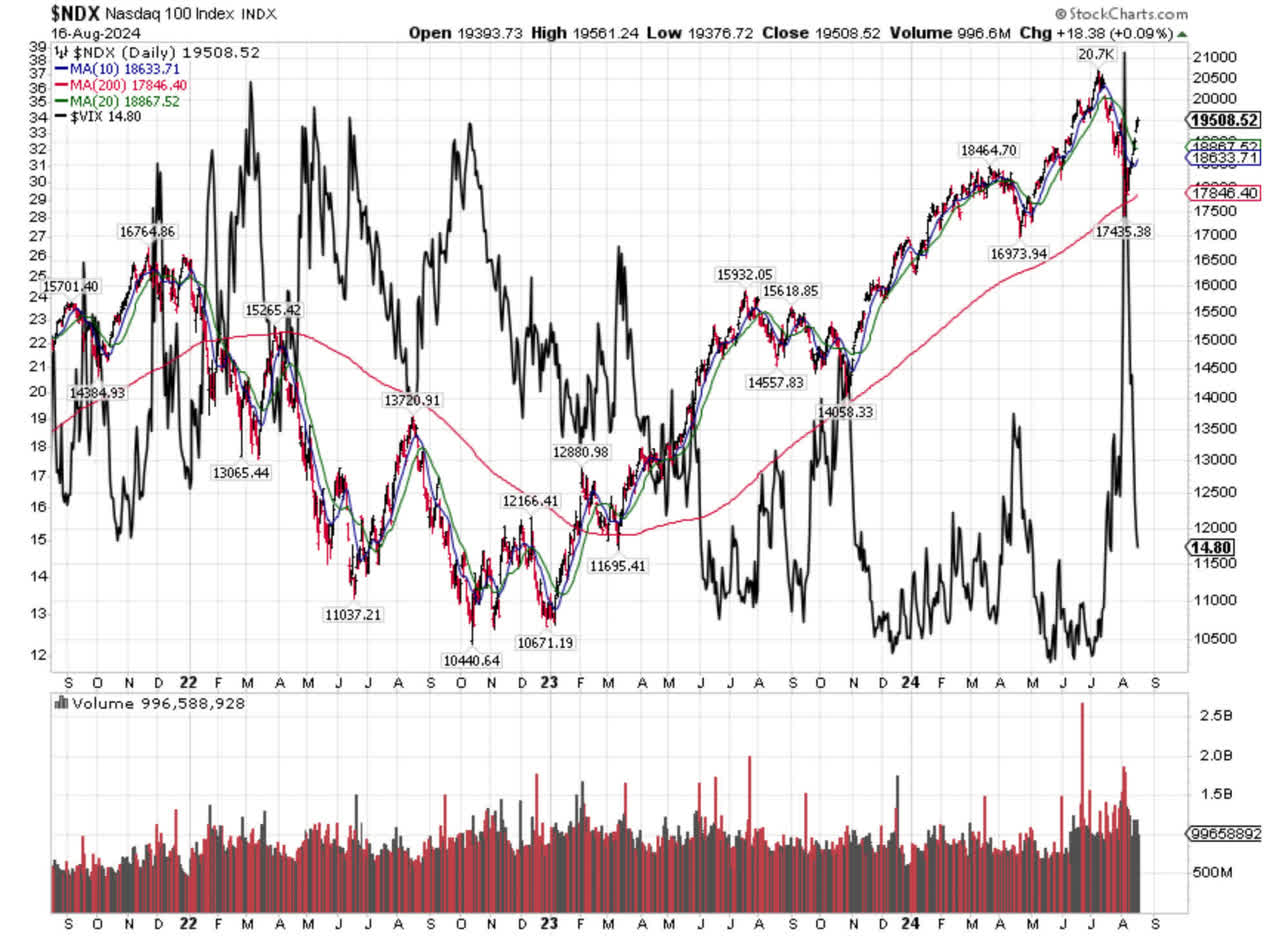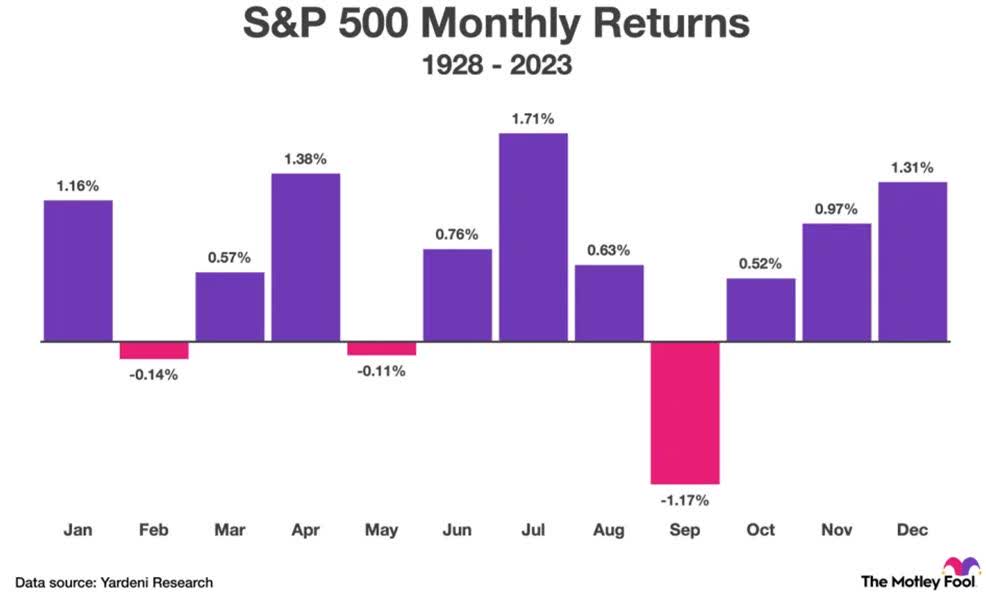This Latest Feels Like An Upside Overshoot
Summary
- Upward sloping 200-day moving averages typically become buying opportunities.
- Market may see sideways consolidation with potential retest in September based on negative seasonality.
- Recent rebound in market has been fierce, potential events like earnings reports or geopolitical developments may impact future movements.

Raylipscombe/iStock via Getty Images
When a correction gets going, investors often ask me how far this correction will go. To be honest, I may have a good guess, but I never know for sure and neither does anybody else. I did think the 200-day moving average on the Nasdaq 100 index would likely provide good support (the updated chart is below).

Graphs are for illustrative and discussion purposes only. Please read important disclosures at the end of this commentary.
Typically, upward sloping 200-day moving averages become buying opportunities.
Up front, to be clear, I don't believe markets are rational. If they were, investors couldn't make much money picking stocks. If markets were completely rational, most stocks would grow or fall very slowly.
In the real market, we did get to the 200-day MA very quickly, and now we are equally quickly moving away from it. Also, when the VIX spikes quickly and has one or two double-digit percentage declines afterwards, that tends to be a good intermediate buy signal. Still, the S&P 500 has been up for eight out of the last nine trading days (and every day in the past week), so it would not be a stretch to say that some type of sideways consolidation is likely, and that this week may also see one or two down days.
Germany's DAX index (DAX:IND) has been up all nine of the last nine trading days, as I write (on Sunday). Tokyo's Nikkei 225 Index (NKY:IND), which more or less crashed early this month, went from up 26.9% for the year, as of its July highs, to being down 5.5% for the year, at its August low. As of last Friday, the Nikkei is up 14.4% for the year. This type of see-saw action in the midsummer in Tokyo is so far from normal, it is surreal.
The good news is that the Japanese yen, which had been affecting both the U.S. and Tokyo markets, has calmed down and is showing signs that the infamous carry trade has indeed been partially unwound.
What's next?
I doubt that we will make any new all-time highs in August, unless a famous AI chip company blows out its earnings on August 28, or the war in Ukraine stops (unlikely), delivering a sudden positive geopolitical development, which is unknowable at present. Fed Chairman Jerome Powell can also move the market to the upside (or downside), if he chooses to deliver a surprise at Jackson Hole at the end of this week.
With all the possible events that may move the market one way or the other, it feels like the recent rebound has been nearly as fierce as the sell-off. Be that as it may, if one were to look at S&P 500 monthly returns since 1928 (below), one sees that September sticks out like a sore thumb for negative seasonality. In fact, September seasonality is so negative that it is the only month off over 1% the last 95 years.

Graphs are for illustrative and discussion purposes only. Please read important disclosures at the end of this commentary.
As Mark Twain pointed out, history may not repeat itself, but it very often rhymes. If we keep rallying like this through the end of August, I expect some type of retest in September, simply based on negative seasonality and the fact that Presidential election years tend to be very good for the markets, but the stock market tends to flip up and down all the way up to the election, then tends to rally after the results are in.
All content above represents the opinion of Ivan Martchev of Navellier & Associates, Inc.
Disclaimer: Please click here for important disclosures located in the "About" section of the Navellier & Associates profile that accompany this article.
Disclosure: *Navellier may hold securities in one or more investment strategies offered to its clients.
Editor's Note: The summary bullets for this article were chosen by Seeking Alpha editors.
Disclaimer: Investing carries risk. This is not financial advice. The above content should not be regarded as an offer, recommendation, or solicitation on acquiring or disposing of any financial products, any associated discussions, comments, or posts by author or other users should not be considered as such either. It is solely for general information purpose only, which does not consider your own investment objectives, financial situations or needs. TTM assumes no responsibility or warranty for the accuracy and completeness of the information, investors should do their own research and may seek professional advice before investing.

